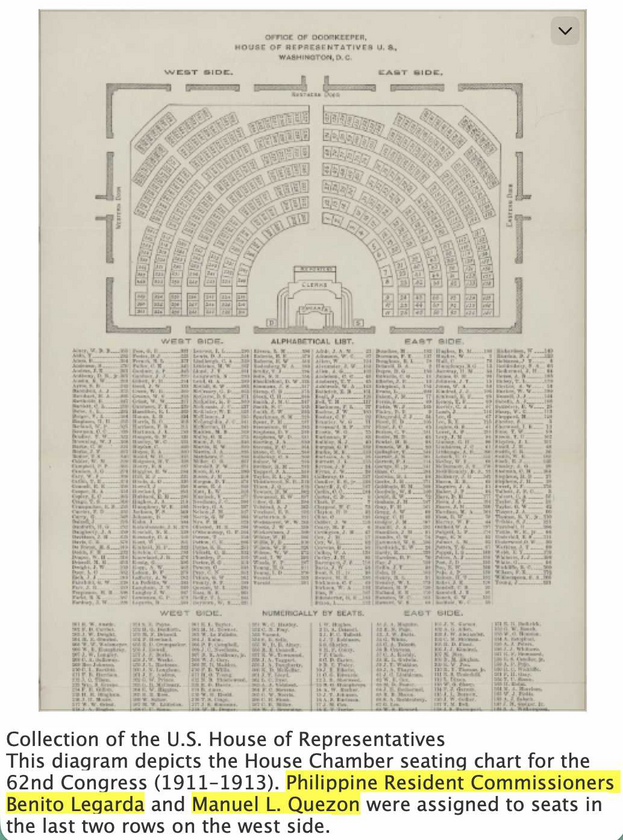James Talarico is running for Senate in Texas as a Democrat. He goes around quoting scripture and taking it so wildly out of context that he must know what he's doing. On The Late Show, he claimed gay marriage and abortion aren't in the Bible. Yikes. What does the Bible say?
Welcome to Politics by Faith. Thanks for being here. This is where we take the news of the day and we bring it to the Bible so we can walk away with perspective and peace. There's new headlines every day. Ecclesiastes says there's nothing new under the sun. So thanks for being here to get the true story.
Early voting is going on right now in Texas for the Senate race. Very interesting on the Republican side. On the Democratic side, it's James Tellarico and Jasmine Crockett. Jasmine Crockett would be hilarious. I can root for her because she's the entertainment value will be off the charts. But James Tallarico is probably going to win it out.
We've talked about him before, a couple of weeks ago. He claims he's a Presbyterian seminarian. And we talked about him because he was on Joe Rogan's podcast and he said that the Bible justifies abortion. Okay. Abortion is biblical because Gabriel asked Mary permission before she became pregnant with Jesus. And we read Luke and that's just not true at all.
I can't, I usually like to be able to, I pride myself in being able to see the other side's arguments. Like, oh, like here's how you put that together. Like I get that. This one, I got nothing on this one. That's just straight made up. He is a blasphemer in a really sick way.
I understand getting things wrong here and there, missing some nuance, maybe not getting the full context of this or the other, it's fine. But to justify wicked, sinful, evil things in the name of the Bible is demonic. He also said as a Christian that Christianity is just one of many faiths. He said this on a New York Times podcast. And it's like the word, it's like a different language and you can have a cup here and there's different words for the word cup in English and Spanish and French and German. and Somalian but it all leads to the same it all describes the same thing and and we all there's all these different religions Buddhism Hindu and they all they're all the same God and they lead to the same place like oh man what are you talking about that's awful how can anyone it speaks to how biblically illiterate unfortunately so many people are that This guy can go two seconds claiming to be a Christian or claiming to be a Presbyterian seminarian, whatever.
So here's what happened the other day. Here's why we bring him up again. He was on the Colbert show and they recorded the interview as they always do with their interviews, but they didn't air it on TV. And Colbert said it was because CBS blocked airing the interview because of FCC equal time rules. Equal time, it applies to radio and TV, where if you interview a candidate, then you have to interview all the candidates. You have to give them equal time.
Or don't interview anyone, but if you give some time to one, you gotta give equal time to another. I've never, in my radio days, I've never seen this really ever enforced. Actually, I've never seen it enforced in my life. But CBS was a little on the edge, because the primaries are going on. So they could've seen Jasmine Crockett's people coming out and complaining. So they didn't air it.
But Colbert talked about it and talked about it as if, you know, oh, this got censored. So it ended up getting way more attention on YouTube anyway than it ever would have gotten if it did air. Like no one watches The Late Show with Colbert, so whatever. But he ended up getting way more attention with it.
And that's fine because we then got to hear him say just blasphemous stuff.
this. Well, for 50 years, the religious right, a political movement, that is the perfect description for it. They convinced a lot of our fellow Christians that the most important issues were abortion and gay marriage, two issues that aren't mentioned in the Bible, two issues that Jesus never talked about. Jesus in Matthew 25 tells us exactly how you and I, and every one of our fellow believers, how we're going to be judged and how we're going to be saved.
By feeding the hungry, by healing the sick.
So the Bible says we need more welfare for everyone, is what he then concludes. By welcoming the stranger. Nothing about going to church, nothing about voting Republican. It was all about how you treat other people. Don't, don't, I've said, I've said before, don't, tell me what you believe, show me how you treat other people, and I'll tell you what you believe. And I think in our faith, we've got to get back to those fundamentals.
My granddad was a Baptist preacher in South Texas. And when I was little, he told me that Christianity is a simple religion, not an easy religion, he would always clarify, but a simple religion because Jesus gave us two commandments, love God and love neighbor. And there was no exception to that second commandment.
Love thy neighbor regardless of race, or gender, or sexual orientation, or immigration status, or religious affiliation. And it's why I have fought so hard for the separation of church and state in the state capitol in Texas, because... Yikes. We talked about the separation of church and state in just our most recent episode. Reverend Ben Johnson said, does welcome the stranger apply to the stranger you personally created in your womb?
No, just kill that stranger. I'll also add to love your neighbor means to tell them the truth. So what's broken here? Half truths, false preachers. This is the same guy who did a New York Times interview. And he said, they're talking about transgenderism.
And he said, well, Paul said there's neither male nor female, which is pretty woke for the first century. Whoa, this is such a clear example of how this guy twists scripture. He's talking about Galatians 3, 27. For as many of you as were baptized into Christ have put on Christ. There is neither Jew nor Greek. There's neither slave nor free.
There is no male or female for you are all one in Christ Jesus. And if you are Christ's, then you are Abraham's offspring, heirs according to promise. He's not saying, obviously Paul's not saying that when you get saved, you I don't know, like a are able to turn into a man or a woman or forget even safer that you're able. There's no such thing as gender. That's not what Paul is saying. This is the same Paul who said that wives are to submit to their husbands.
Okay, so Paul is saying here that when it comes to salvation, it doesn't matter who you are. Slave free, Jew, Greek, male, female doesn't matter. He's not saying that you can turn into something else or that gender doesn't exist. He's saying it doesn't matter when it comes to salvation. How wonderful is that news? But you see how twisted that is that he can get it.
You can pull that off. how he can deceive people, what a liar, really twisting scripture in really, really evil ways. So on the point he was making, his opening argument that the Bible never even talks about homosexuality or what was it? gay marriage. Of course it does. Marriage is between one man and one woman.
Genesis 2 24. Therefore a man shall leave his father and his mother and hold fast to his wife and they shall become one flesh. Man, woman, end of story. But Jesus affirms it. Matthew 19 4. He answered, have you not read that he who created, this is Jesus talking, he who created them from the beginning made them male and female and said therefore a man shall leave his father and his mother and hold fast to his wife and the two shall become one flesh.
So they're no longer two, but one flesh. What therefore God has joined together, let not man separate. " So yes, the Bible talks about marriage and what marriage is, defines it. The Bible defines marriage. On homosexuality, Leviticus 18, 22, you shall not lie with a male as with a woman. It is an abomination. Oh, so that's Old Testament. Fine. New Testament, Romans 1, 26. For this reason, God gave them up to dishonorable passions. For their women exchanged natural relations for those that are contrary to nature. And the men likewise gave up their natural relations with women and were consumed with passion for one another. men committing shameless acts with men and receiving in themselves the due penalty for their error." 1 Corinthians 6, 9. Or do you not know that the unrighteous will not inherit the kingdom of God? Do not be deceived. Neither the sexually immoral, nor idolaters, nor adulterers, nor men who practice homosexuality.
" Oh, it doesn't even talk about homosexuality. Of course it does. And then abortion. I mean, like, what do we even say? Abortion is obviously murder. What else would it be?
Healthcare. Human life begins at conception. There's no other objective time into the development of a human being when it's more human than it was a moment before it. Human life, therefore, must begin at conception. There's no other point in a human's life when you're like, oh, this is when it's actually human. Nope.
You're human from the very beginning and all the way through to the end. We have different names to define the different levels of development, different stages of a life, embryo, fetus, newborn, toddler, teenager, a seasoned citizen, but you're a human being the whole time. So there's some Bible verses to arm you with the truth. to combat the lies of Telerico and many others. Listen, politically, I'm happy that this is the best Christian that the left could find, because that's what they're doing. Obviously, we got to win in Texas.
How do we do it? Well, let's find a Christian. Well, we can't. There are no Christians who are running or Democrats. So we don't know what to do. Like, well, find any blasphemer.
It doesn't matter. Just anyone who can maybe quote a scripture or two out of context and we'll take it. Hopefully, there are not many Christians left in the Democratic Party. So politically, it's fine. But bigger picture, culturally, it makes me sad that anyone could misinterpret the scriptures this badly and not be open to any criticism. Like if I ever misinterpret a scripture or don't provide the full context, I would expect anyone, you and anyone in my church or whoever to come to me and be like, oh, Sutter, you missed this point here.
You missed on it. And I will come back the very next day and correct the record. He's unwilling to do that. Of course. That makes me sad. I don't know if he is misinterpreting this though.
I'm certain he's not misinterpreting this. I think he knows what he's doing.
So what makes me sad then is that there would be anyone who would fall for it, but not you.
So go spread the word. MikeSlater . Locals . com. Transcript commercial free on the website, MikeSlater .














